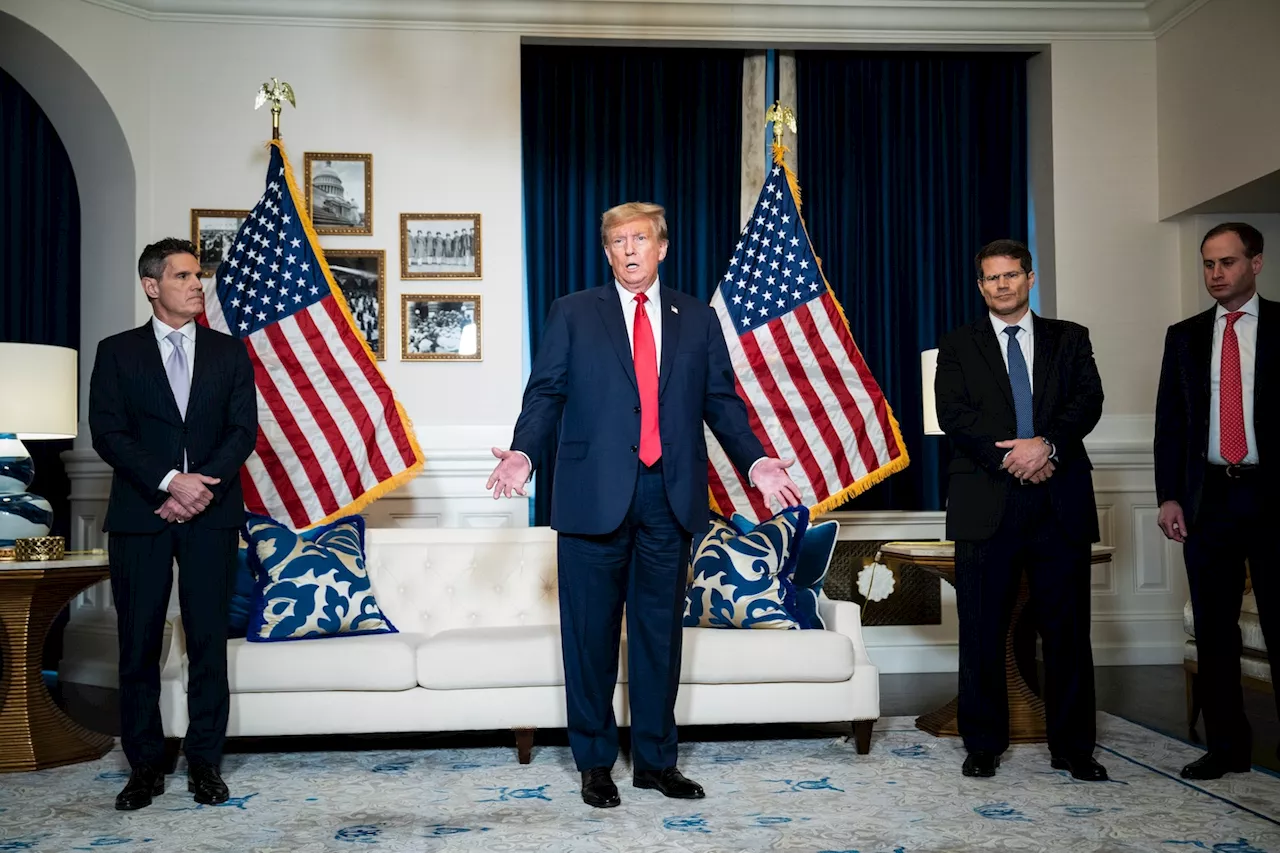Trump has claimed that former presidents cannot be prosecuted for actions related to their official duties, unless impeached and convicted by Congress first.
Former president Donald Trump, with attorney John Lauro, left, and D. John Sauer, center right, speaks to reporters after attending a hearing of the D.C. Circuit Court of Appeals on Jan. 9. can be put on trial for trying to stay in power after losing the 2020 election, rejecting Trump’s sweeping claim of presidential immunity and moving the case one step closer to a jury.
“I think it’s paradoxical to say that his constitutional duty to take care that the laws be faithfully executed allows him to violate criminal laws,” Karen L. Henderson, the lone Republican on the panel, said during arguments over the case in early January. For years, former president Donald Trump's lawyers said he should only be immune from charges while in office. Now, they say he should have absolute immunity.
Justice Department attorney James Pearce told the appellate judges that while a future court might rule that presidents have criminal immunity for some war-related decisions, that wasn’t relevant now. What Trump is accused of sets him apart from any other White House occupant, Pearce said: “Never before has there been allegations that a sitting president has, with private individuals and using the levers of power, sought to fundamentally subvert the democratic republic and the electoral system.
